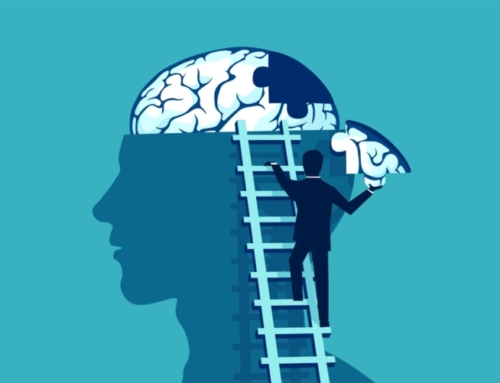Below is a transcription of the video (it has been edited for clarity):
Many physicians who do poorly on their boards feel frustrated by underperforming on their exam in relation to their medical knowledge and confused by not knowing how to fix this performance gap. Here I explore the first of five contributors to medical board exam underperformance and provide solutions.
Poor Focus on Exam Question Due to Anxiety
One cause of poor board exam performance is a lack of adequate focus on the content of exam questions, often due to anxiety. Exam questions are usually relatively complex and require careful reading and consideration. Each piece of information in the question should be assumed to be relevant, placed there to guide the test-taker towards certain diagnostic possibilities or management approaches and away from others. Thus, each piece of information adds to a growing depth of case information that guides the test-taker closer and closer to the “single best answer” and further and further away from the other 3 or 4 less good options. Simply put, exam questions require careful and sustained attention.
Anxiety is a physiological response to threat that leads to, among other changes, narrowed and heightened awareness. Put this way, it may seem that anxiety could help exam performance, but it rarely does. Why? Because the target of focus when anxious is not on the content of the exam question but rather on the source and consequences of the threat, in this case the threat of failing, leading to a stream of worry thoughts, such as, “This is hard. I don’t think I’m doing well. I think I’ll fail. If I fail what will that mean for my career?” Another common focus during anxiety is a self-reflexive focus on the anxiety itself, “Oh no, I’m so anxious. This is really bad. I can’t focus. How do I calm down? I told myself I wasn’t going to get anxious and now I’m anxious anyhow! Please let me out of here.” I may be exaggerating on the nature of the anxious thoughts, but not by much; I know physicians who became so anxious they actually left the exam room and did not return!
So, what is the solution to this problem? Let’s first admit that anxiety and taking important exams often go together. My strong advice is NOT to tell yourself that you won’t be anxious or that you shouldn’t be anxious. First, this is a promise you’ll often be unable to keep – anxiety is an emotion that you can’t just tell yourself to stop having. There are techniques to affect emotions, including anxiety, indirectly, as I’ll address next.
In fact, anxiety need not substantially interfere with your exam performance – it may even help it! Think of anxiety as excitement that provides you the energy and stamina to complete the exam and the focus to carefully attend to question content. This a technique actors use when they feel anxious before taking the stage: they “reappraise their anxiety” by thinking of it as excitement or arousal, which indeed it is. So, rather than thinking, “I need to stay calm… Oh geez, I hope I can stay relaxed” instead think, “I’m pumped. It’s a long exam and I’m glad I have the energy to get through it.” Or say to yourself, “Being aroused and excited gives me the added focus I need to pay close attention to these hundreds of exam questions I have to get through.”
If you have the thought, “This sounds like I’m just trying to fool myself and it probably won’t work,” my answer is that excitement, arousal, anxiety are fundamentally the same physiological responses that differ by how we interpret them and what thoughts we choose to attach to them. Thus, interpreting this physiological response differently or “reappraising” it is not denying a reality that exists but rather shaping a reality to better meet our needs.
Thanks for reading. I’ll continue with the series in weeks to come.
Dr. Jack
Today’s Quotes
“Emotions, in my experience, aren’t covered by single words. I don’t believe in “sadness,” “joy,” or “regret.” … I’d like to have at my disposal complicated hybrid emotions, Germanic train-car constructions like, say, “the happiness that attends disaster.” Or: “the disappointment of sleeping with one’s fantasy.” … I’d like to have a word for “the sadness inspired by failing restaurants” as well as for “the excitement of getting a room with a minibar.”
Jeffrey EugenidesThey sicken of the calm who know the storm.”
Dorothy Parker“I wanted change and excitement and to shoot off in all directions myself, like the colored arrows from a Fourth of July rocket.”
Sylvia Plath







Leave A Comment